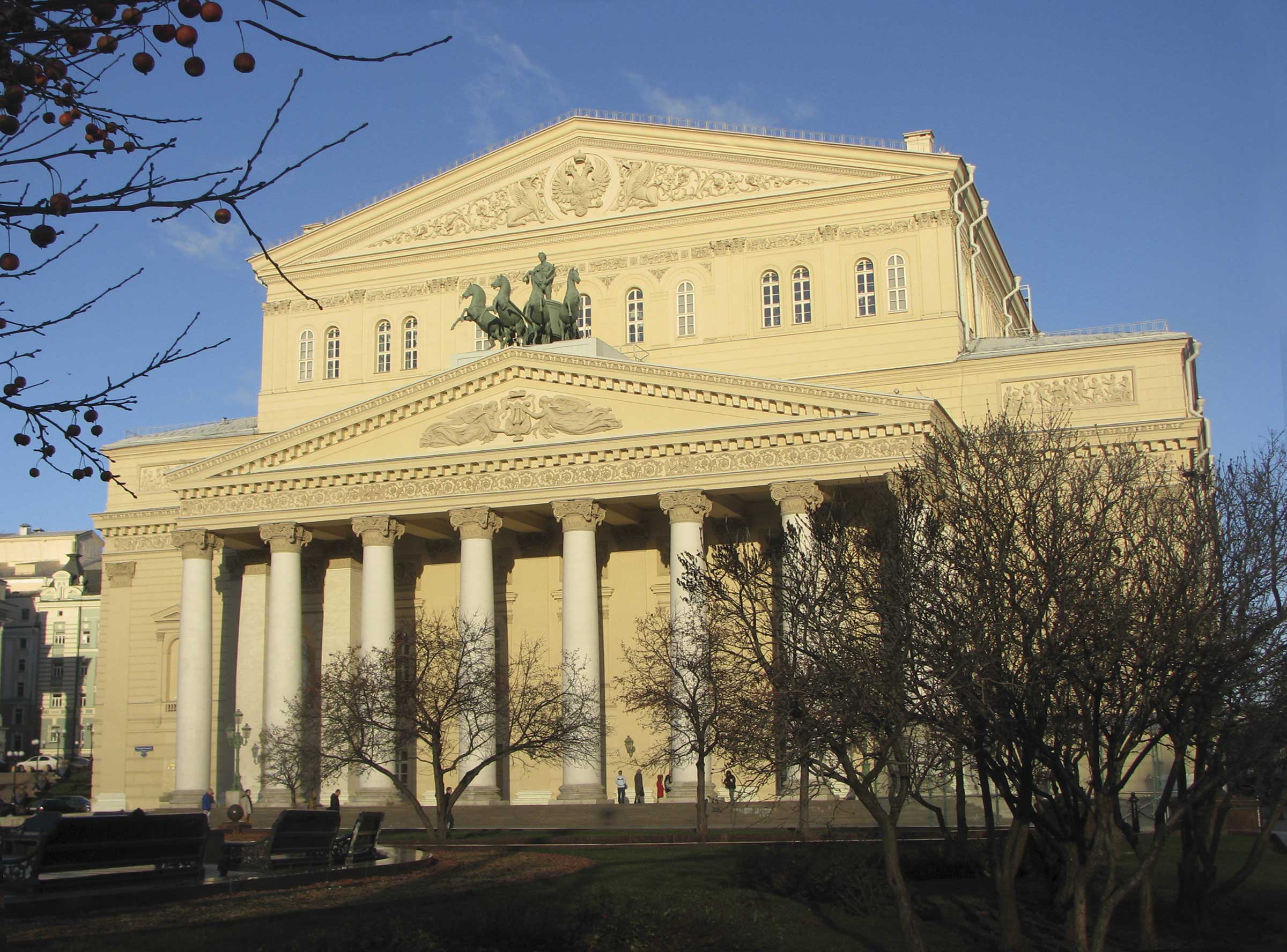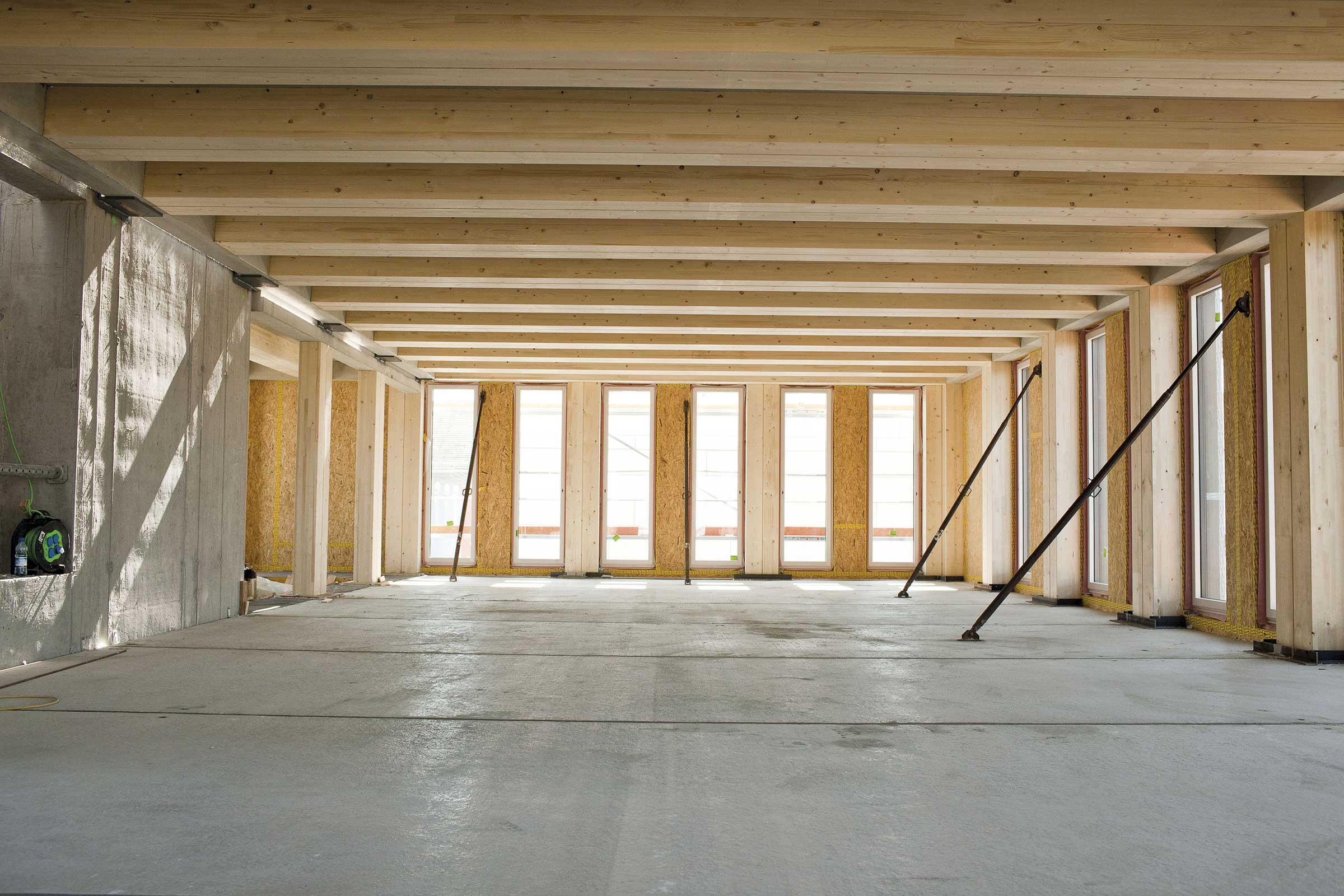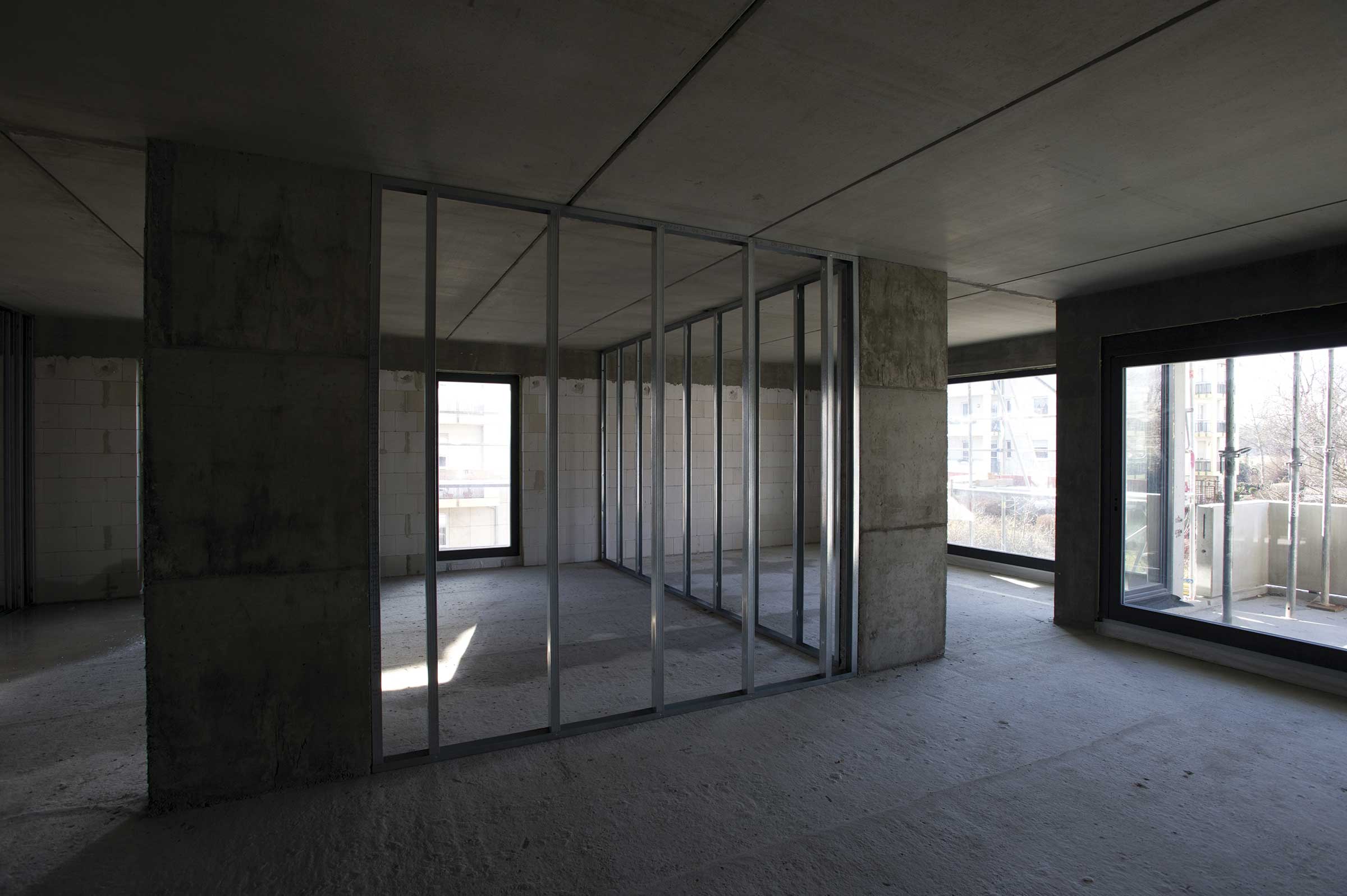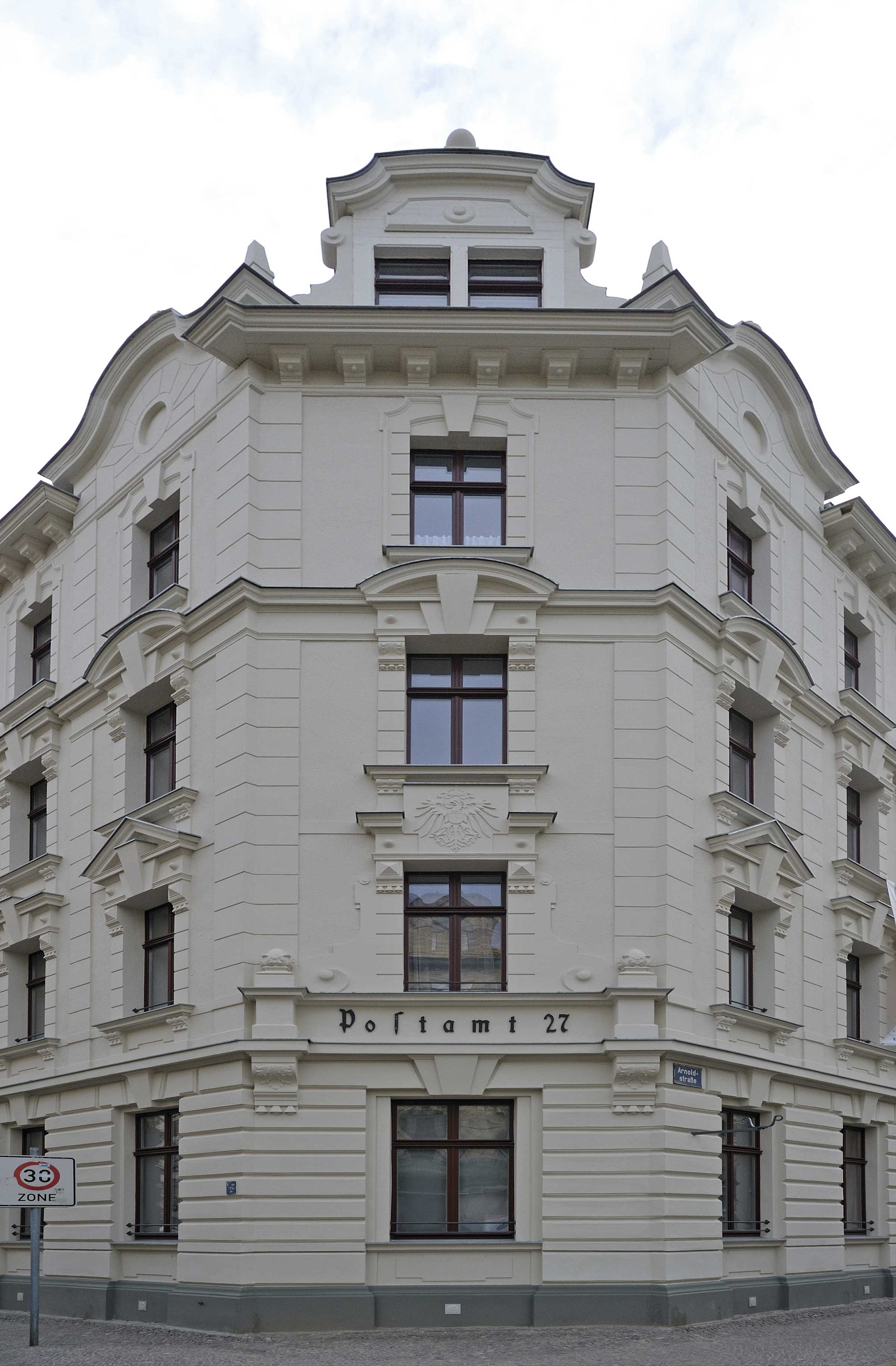Project details
- Product used: URSA PUREONE
- Application: Internal walls
- Building type: Other uses
- Architect:

On October 2011, the famous Bolshoi Theatre in Moscow reopened its doors after 6 years of restoration. The major renovation works, which started on July 2005, employed over 3,000 workers and cost over 21,000 million roubles – around 500 million euros –, have returned the Theatre back to its former imperial splendour, as it was back in 1856.
One of the main goals of the repairs was to improve the Theatre’s acoustics to bring the sound quality back to the standards that made it the best in the world back in pre- Soviet times. URSA was selected by the design team among manufacturers from all around the world to insulate the Bolshoi.
The Theatre’s original acoustics had been completely lost in the last Soviet renovation works, where reinforced concrete was used. To recover the excellent sound quality, while stripping the entire space from any traces of concrete, URSA’s URSA PUREONE was used: a white top performing mineral wool, with a high fire-resistance rating which contributes to improve the indoor air quality of those buildings where it is installed. It is a 100% recyclable material of natural origin offering important thermal and acoustic insulation advantages that help to improve buildings’ sustainability. E.g.: during a building’s life, 1 square metre unit of URSA PUREONE can save 200 times the energy used in its manufacture, transport and installation.
Covering it, wooden panels – made out of the “resonance fir tree” – were placed, identical to the original ones used in 1825 that made the theatre’s sound quality unique.
Besides restoring the main concert hall, the Bolshoi duplicated its size. An underground concert hall was built, 20.5 m deep, with capacity for 330 spectators. Owing to its proximity to the underground line, this space, called the Beethoven hall, had to be especially insulated to protect it from train vibrations.
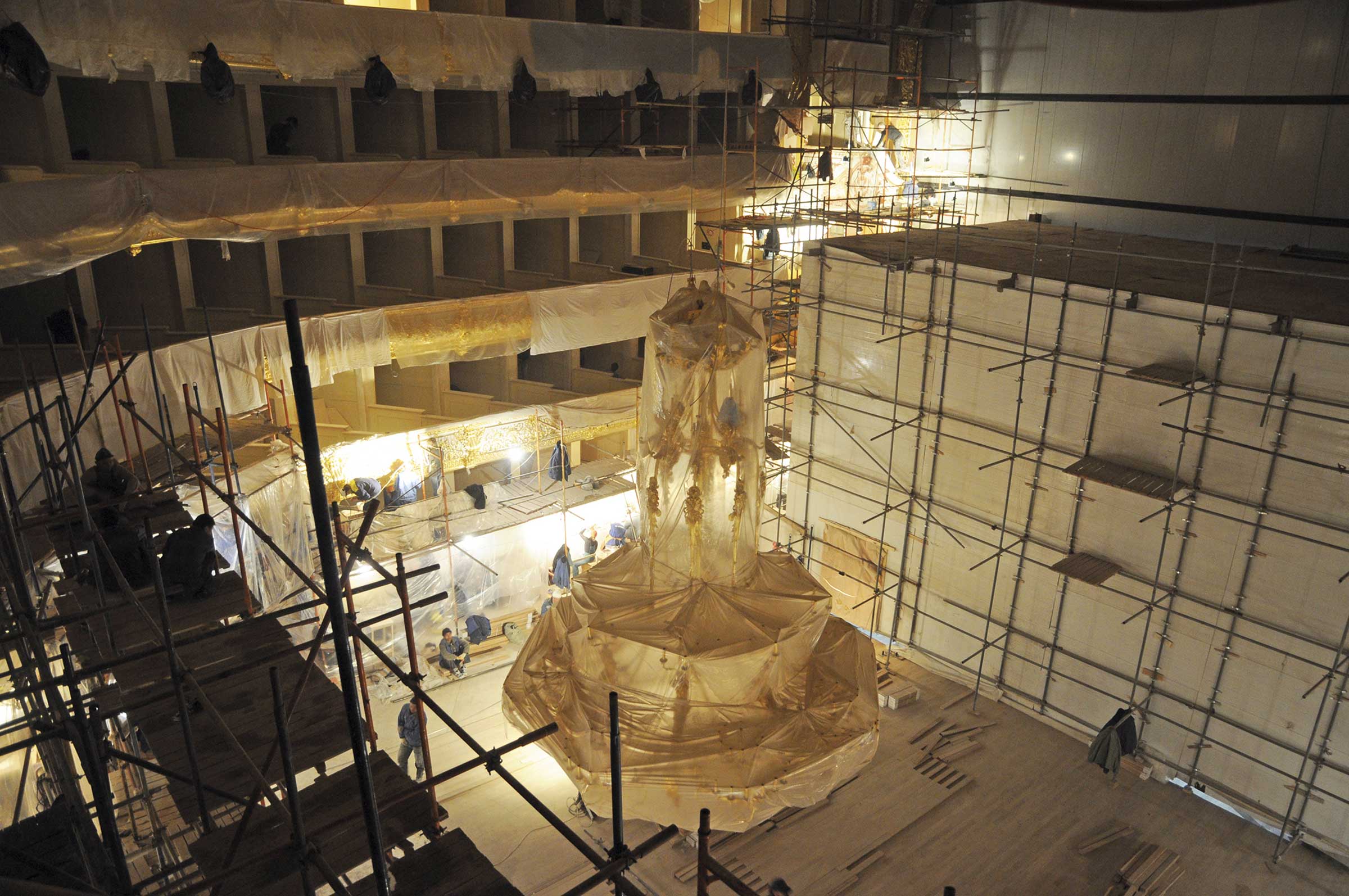

Location: Moscow (Russia)
One of the main goals of the repairs was to improve the Bolshoi acoustics, bringing them back to the standards that had turned it into the best theatre in the world.

